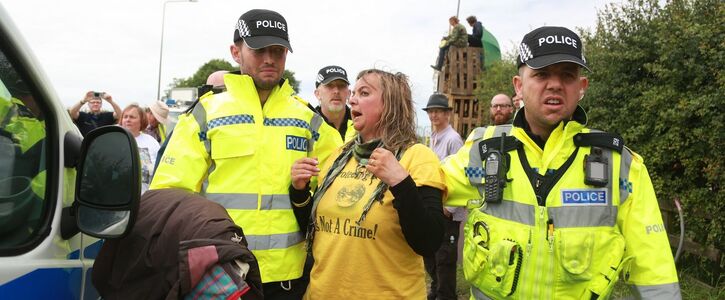Senior police officers must properly consult with and listen to campaigners about the conduct of policing operations in response to protests against fracking and other onshore oil and gas exploration in the UK.
Why is this important?
The police continually insist they value dialogue with campaigners who oppose plans to drill for oil and gas in local communities. It doesn’t feel that way, however, to people who are taking part in protests against these activities.
Instead, they have condemned the way their human rights have been repeatedly trampled on by the police, how concerns raised with senior officers about aggressive policing are ignored and how formal complaints are hurriedly dismissed. Campaigners say officers have pushed them into hedges, violently dragged older people across roads, shoved others into speeding traffic and persistently made arbitrary and incomprehensible arrests.
For eighteen months, the National Police Chiefs Council (NPCC) has kept promising to review the direction it gives local forces on the policing of these protests and at last, this now seems imminent. Despite pressure from Netpol, however, the senior officer leading the review has been extremely reluctant to consult directly with campaigners, despite their invaluable first-hand experiences of the way policing operations are conducted.
We say: meaningful dialogue and genuine accountability means listening to critical voices. We want Lancashire Assistant Chief Constable Terry Woods - the NPCC Lead on Shale Gas and Oil Exploration - to take consultation seriously and formally invite members of the public to submit their testimony on the policing of local anti-fracking protests. The NPCC then needs to brief all the participants in the consultation on how its national guidance has subsequently been updated and improved.



